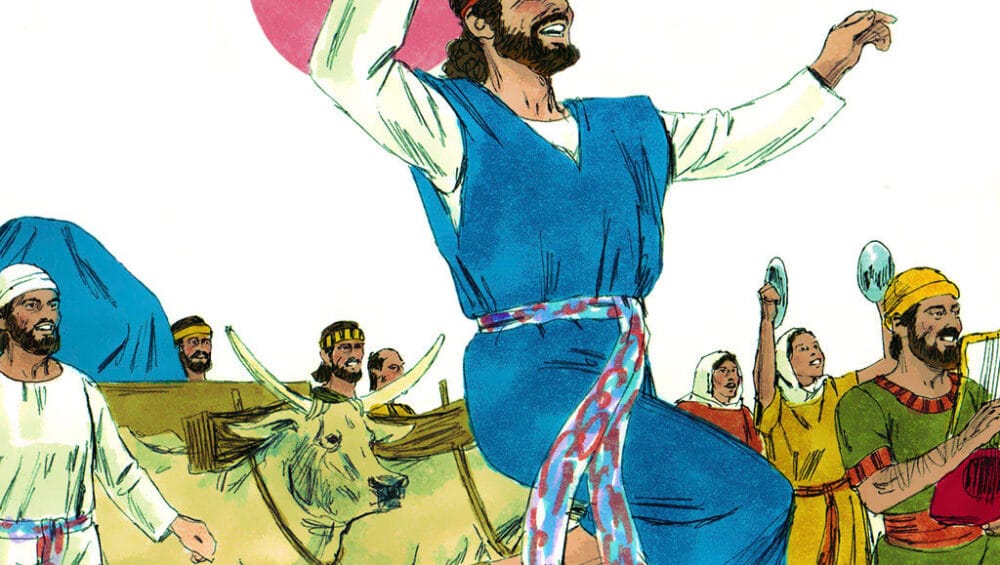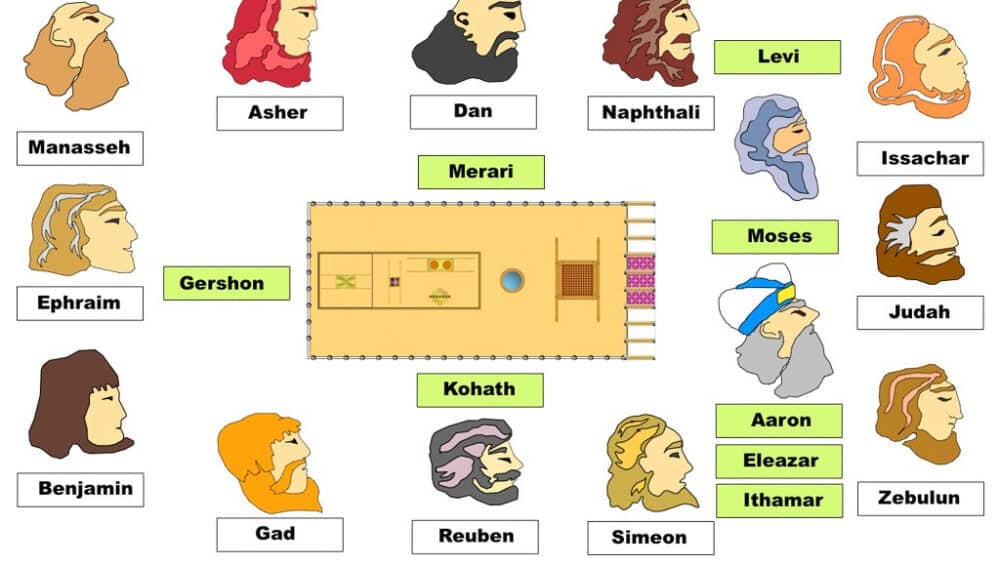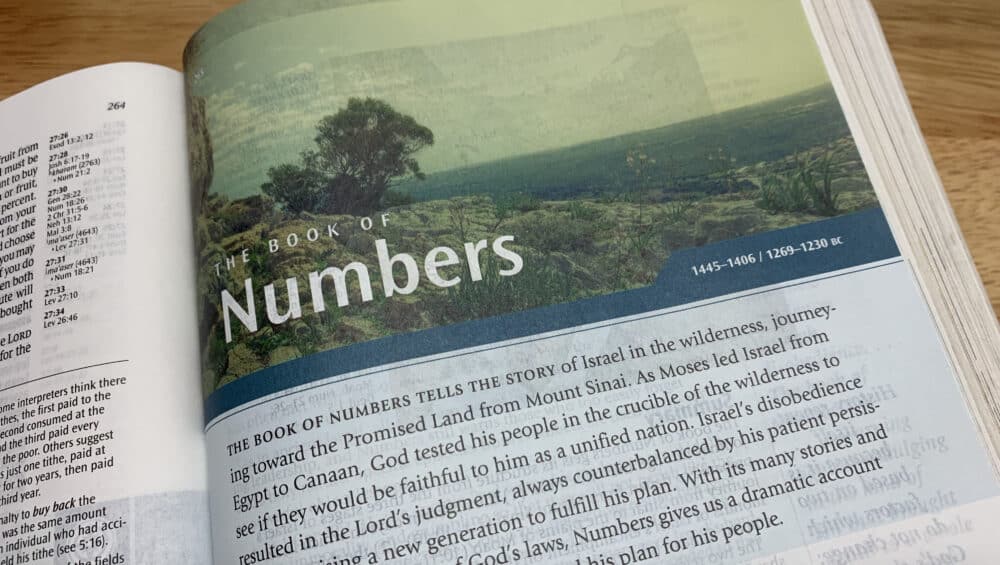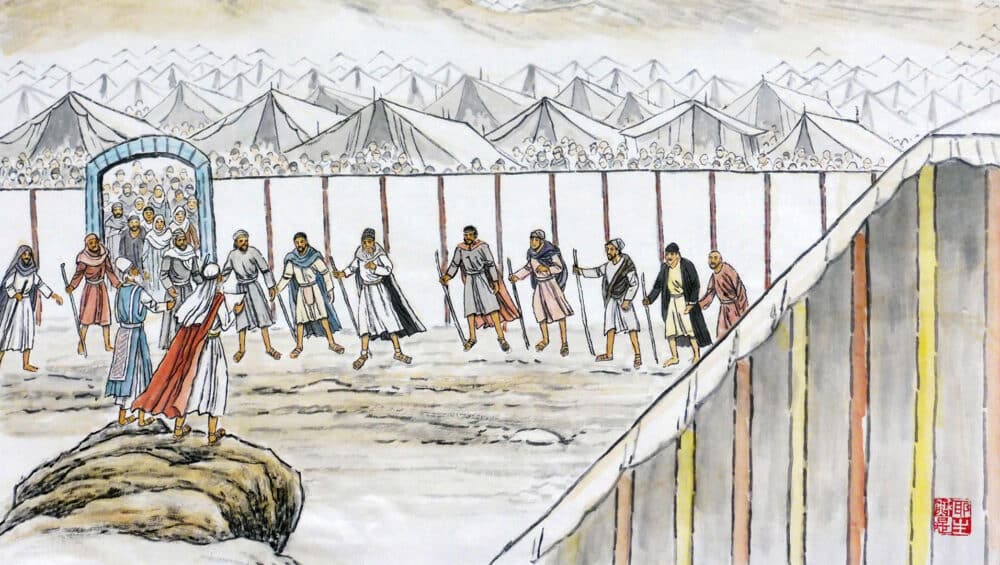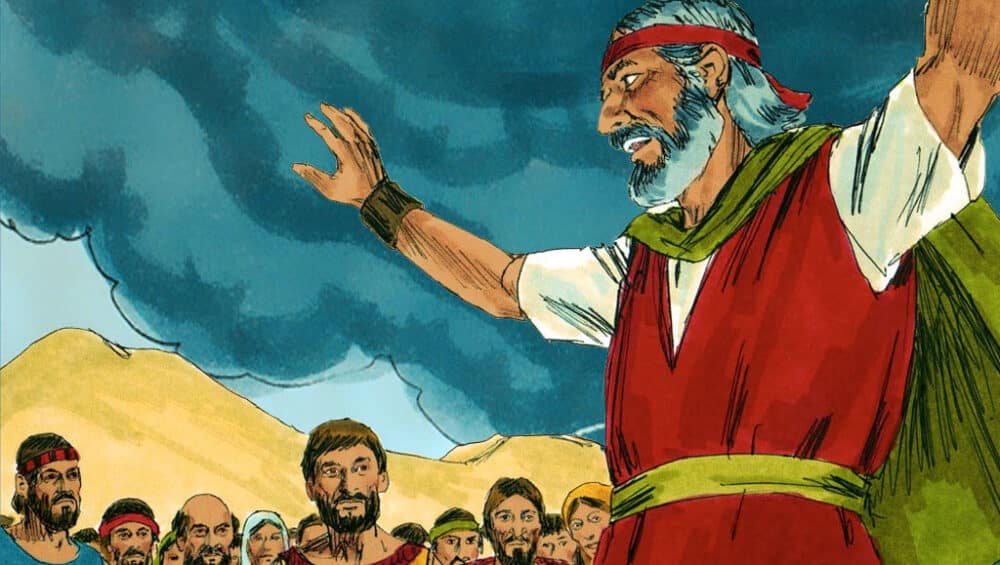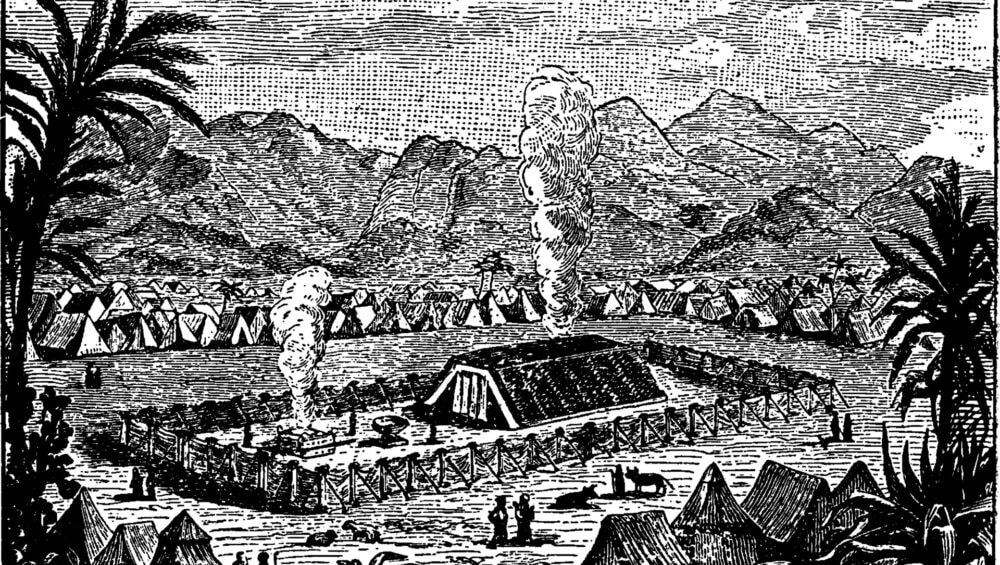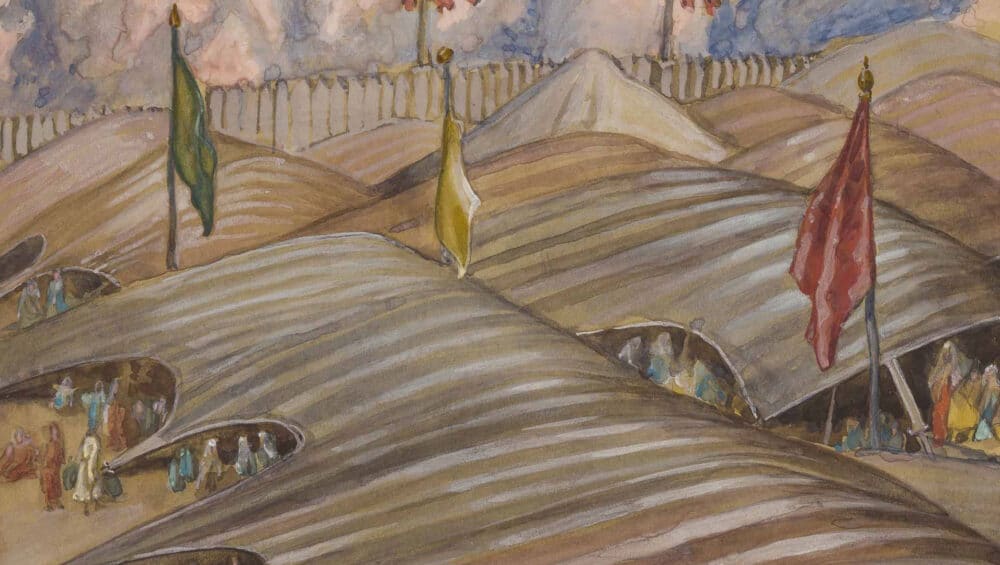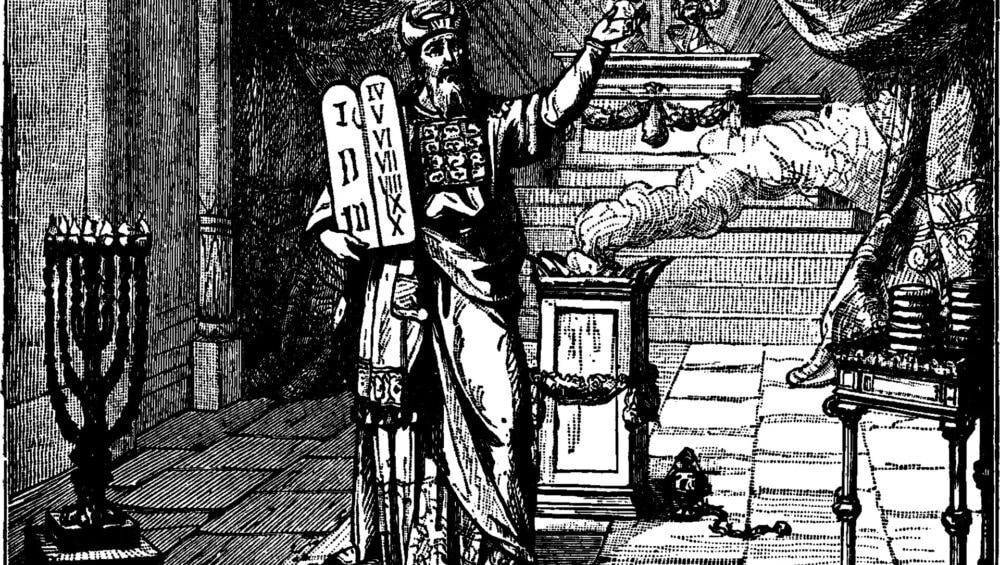Welcome to Livin’ Light’s Bible-In-A-Year challenge of discovering God’s love for us and His purpose for our lives. Here is the format for this great adventure: The daily reading assignment is posted at 5 a.m. After each day’s reading, Leigh An Coplin, the blog host, shares observations and poses questions about difficult passages to Rob Fields, who studied Christian Education at Asbury Seminary and currently teaches Biology in the Orlando area. To start from the beginning, click on 365 Bible Readings and scroll down to Day 1. The reading schedule is taken from The One Year Chronological Bible NLT.
Today’s Reading
— Leviticus 12
(1445 BC) Click here for a timeline of the whole Bible.
Questions & Observations
Q. (Leviticus 12:1-8): Lots of questions here. What does it mean to be unclean? Why are women unclean after childbirth, something that I would think be a blessing! Maybe it has something to do with the blood, as we discussed before? Why the difference in wait time between having a boy and having a girl before a mother can be ceremonially clean?
A. Remember that the sacrifice system only allowed for two options: you were either ceremonially clean or unclean. If you were unclean, you could not fully participate in the religious life of the community — you couldn’t enter the courtyard of the Tabernacle, for example — and you would have been forced to live outside the safety of the community, as this text alludes to. It was a powerful incentive for families to maintain clean dwellings and bodies.
While the kosher section is a bit tougher to pin down the “reason” for some animals and not others, the reasoning here is pretty simple: this is basically a system of public health. Blood, mold, open wounds, and other such things could spread disease, which could spread disease among the whole camp (keep in mind that there is no basic sanitation at this point). So for the childbirth, it is indeed the bleeding, not the birth itself, that caused the uncleanliness. The menstrual blood from either monthly cycles or the after effects of giving birth was a great hazard for disease. The reason for a shorter “quarantine” for baby boys than girls has been lost to history.
Q. (13:1-46): Rob, can you tell us the significance here? In the NT, Jesus heals so many people. Here, anyone with an affliction, must be examined to see if they are pass all of these tests to see if they are worthy of what? What does it mean to be ceremonially unclean? They can’t worship God? In 12:44, those with serious skin diseases must live outside camp and holler “unclean, unclean” to passers-by. Where is God’s love here? Or, am I likely missing a big point?
A. I confess that this passage is difficult to understand, but we have to understand that it is God setting these rules, and we can trust that He had good reason to do so. This is a legal system God is building here: it will have its imperfections — when in comes to individuals verses the group safety — and things that look unfair to us from a distance. While there was a process involved, it is important, I think, to note that there were very few conditions — save leprosy — that would have made people PERMANENTLY separated from the tribe. Most people with skin disorders or similar problems (we will see more of this coming, so hang in there!) would get over them eventually, and could regain full status in the tribe.
The big idea here is that since the presence of God is set in the camp, the camp itself must be a place of ceremonial cleanliness: this is ultimately why all of the restrictions, rules, and procedures that sound harsh and ridiculous to us were put into place. The presence of God will not stand the presence of things that are unclean (including people) in the midst of Himself, which is central to our understanding of how God relates to sin (which of course makes us ritually unclean). One other note: many of these rules will be shifted a bit when the camp moves into the Promised Land and the Temple specifically, so there is something to monitor.
Perhaps something else to think about is that by the power of God through Jesus Christ, no one ever has to be unclean again — that certainly puts a different spin on His healing of lepers, doesn’t it?
Q. That brings me to another question. Only the priests and Levites were allowed inside the Tabernacle, right? Where were the Israelites — non-priests and non-Levites — supposed to worship?
A. The Tabernacle was not a place of worship for the general population, and it wasn’t really a place of worship for the Levites either: it was the meeting place with God where the Law was upheld and sin atoned for. As to where the people did worship, I honestly don’t have a good answer to that. It does not appear that there were other locations for worship, so my assumption would be that the people would worship near the Tabernacle — which was at the center of camp remember — but I see no reason that the people could not worship from their own tent homes.
Q. (13:47): My footnotes say that “mildew” actually means “leprosy.” Why would the NLT version change it to mildew?
A. OK, this is a tricky answer. So let’s try to thread the needle. Basically, the Hebrew word used in these passages, sara’at, is a word with a much broader definition than either mildew or leprosy alone. The word refers to various skin diseases of which leprosy is only one (we actually run into this same problem in the Greek of the NT), but the word ALSO is used to refer to spots on clothing, what we would call mildew or fungal growth. The mold/mildew/fungal growth that takes place in a house — think of dirty bath tub mildew/mold — or other dwelling, which comes up in our next section. So basically, I disagree with the footnotes assessment that the word used “means” leprosy. It is actually a broad word with many different definitions, some of which we probably do not even know, and the NLT translators — it’s the same with NIV — have done their best to use the context clues to give our “best guess” as to what the rules have in mind in each instance.
O. (14:14): The blood on the right ear lobe, the right thumb and the right big toe is explained in Day 41 (Feb. 10) questions. You can find it by clicking on the index tab.
Q. (14:1-7): Why the two birds, cedar stick, scarlet yarn and hyssop branch? Why was one bird released?
A. Certain rituals — including the Day of Atonement from chapter 16 — involved two animals: one was killed, symbolizing the penalty for the sin, and one was released, symbolizing the removal of the sin/purification of the person or people in question. All three of the other items were used in cleansing and washing rituals, so that the entire procedure involved both sacrifice and cleansing elements.
Q. (Leviticus 14:1-32): In this law, why would someone with a cured skin disease have to make a sin sacrifice?
A. There is probably a mentality that those who have caught a skin disease were being punished for their sin (Job anyone?), and therefore they needed to make a sacrifice for their presumed sin. When it came to being ritually pure and getting your life back, better safe than sorry!
Q. How did the priests keep all of these rules straight? There are so many. Maybe, because of the culture of the times then, they were able to make more sense of all the steps to make offerings and be pure?
A. I don’t have an exact answer for you here, but I’ve read about the process of becoming a priest in Jesus’ day (NT), and these men began learning about the Law almost from birth, so that by the time a person was actually a “career” worker for God, he would have known the Law inside and out. It was their very life! We tend to see this as “so many commands,” how could they remember it all. But most of us know someone who can tell you entire lines from movies, or practically entire chapters from their favorite books. It is remarkable what the human brain can fully remember when we are driven to learn or remember something because it has such an impact on us.
Quite frankly, we don’t know nearly as much about the Bible (any part really) as the first Christians because there was LITERALLY nothing more important to them to knowing God’s word. We choose not to spend vast amounts of time learning the Scriptures, so perhaps we — and I include myself here — should be very careful about judging the memories or intent of a people who were so literally close to God.
Q. (14:21-32): This doesn’t really sound like a cheaper offering to me?
A. It’s less if you double check and do the math.
For further study: What to do with the Bible’s Purity Laws, https://www.thegospelcoalition.org/article/purity-laws/
Shop: Following God and not our own will proves wise, as we seen with the Israelites. Wear and share that knowledge at Livin’ Light: https://livinlight.org/product/wise-owl-t-shirt-gray/
Tomorrow’s reading: Leviticus 14:33-16:34

